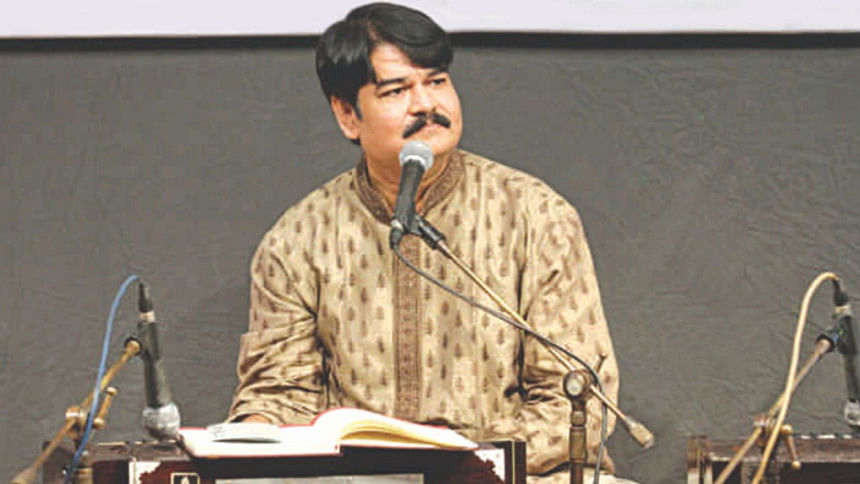A father's undying love

For any renowned figure in today's artistic landscape, sheer talent is almost never enough to go far in life. Parental support and nurturing is a necessity for any artiste pursuing their passion as a profession, and parents become the primary influential figure that shapes their lives. Noted singer Sujit Mostafa, whose accolades have marked him as one of the leading musicians of our time, is the son of the late Abu Hena Mustafa Kamal, who was an academic, lyricist, poet, essayist and critic. In a recent interview with The Daily Star, the singer describes the significant impact his father has made on his life and his undying love and support which carried him to where he is today. Excerpts:
“My father's early years were that of struggle, but he was a man of sheer brilliance. After the demise of his father, he began to take life seriously and understood education would uplift him from his tribulations. He excelled in studies throughout school, and during his intermediate exams at Dhaka College he stood seventh from all combined exam groups. Most people after college go on the more pragmatic paths in academia, studying courses that would grant them well-earning jobs. However my father's love for language, literature and poetry, instilled in him from early childhood, led him to study Bangla. He graduated with Honours and Masters in Bangla from Dhaka University, and earned the first class first position. He began writing songs and poetry when he was still a young boy, and became recognised as one of the most-beloved lyricists of his time when he was still a student. His songs were sung by the top-tier artistes in the country of his time, such as Abu Bakr Khan, Anwaruddin Khan, Anjuman Ara Begum, Farida Yasmin and more.”
“Apart from being a poet and a songwriter, he was a commanding presence in the classrooms as well. During his lectures, students from other departments would flock to his class to listen to him. He was also a television presenter on a few musical and magazine programmes. His professional responsibilities included being Provost at Mohsin Hall at Dhaka University, Chief Director of Bangla Academy and Director General of Shilpakala Academy.”

“As a role model, my father was awe-inspiring. When I was in eighth grade, my mother arranged a trainer to teach me singing. Our lessons took place at Chittagong University where my father was an Assistant Professor at the time. My abilities as a strong vocalist was recognised then, which gave me tremendous confidence, but I did not have the courage to sing in my father's presence. One day, one of his students came to visit us and had the opportunity to listen to some of my songs recorded on a spool tape recorder, and he was very impressed. He mentioned it to my father, who took notice and encouraged me to pursue this passion, even though I was a student of Sociology at Dhaka University. His appreciation gave me a newfound start as an artiste.”
“Very few know what a caring and loving father he was. He always kept a small cassette recorder in his chest pocket with some of my recordings, and would urge his acquaintances to listen to my singing. I had a habit of practicing on the harmonium at midnight, when everyone was fast asleep. One night, I had a feeling that someone had slipped quietly into my room. It was my father, who had settled on my couch to listen to me. His approach made me realise the extent to which he enjoyed my practice, and that feeling is indescribable, and incomparable.”
“A country seldom recognises luminaries when they are still alive, and appreciation is often given posthumously. It has been 28 years since my father's passing, and he is seldom remembered. On a similar strain, those whose talents are burning bright today will too fade from the people's minds once they are gone, and this is not a good trend as it takes away from the growth of the nation. Despite it all, I can declare how proud I am to be the son of Professor Abu Hena Mustafa Kamal.”

 For all latest news, follow The Daily Star's Google News channel.
For all latest news, follow The Daily Star's Google News channel. 



Comments